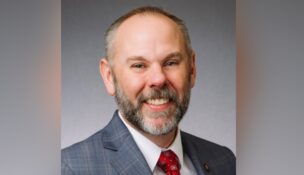Expiring moratorium could complicate pandemic picture for renters
Melinda Waldrop //July 21, 2020//
With a federal moratorium on evictions expiring this month, tenants grappling with the financial effects of the COVID-19 pandemic may soon face a sizable rent bill.
A 120-day moratorium on evictions from federally financed properties was part of the coronavirus relief program passed by Congress in March. That moratorium expires July 25; a similar state prohibition expired May 15, allowing nonpayment evictions to go forward.
“The real possibility is that people who were covered by the federal moratorium, when that expires, they’re going to be looking at a significant back rent bill, and there haven’t been nearly enough options for support for them to alleviate the potential harm that they’re going to face,” said Adam Protheroe, litigation attorney for the S.C. Appleseed Legal Justice Center. “Rental assistance programs in the state of South Carolina have been pretty sporadic.”
Affordable housing finance agency SC Housing provided $5 million in rental assistance in May, with up to $1,500 available to eligible renters as a one-time lump sum to be applied to rent.
“There have been some other municipal-level or county-level or private efforts to put together some rental assistance funds, and those are all great efforts, but they’re probably well shy of the actual need as we see the pandemic continuing to ravage a lot of South Carolina,” Protheroe said.
To complicate money matters, a federal unemployment benefit is expiring at the same time. The Pandemic Unemployment Compensation program, which provided eligible claimants an additional $600 per week, ends in South Carolina on July 25.
“The evidence that we’ve seen suggests to me that there were some areas that were hit harder and faster by this pandemic and by the economic impacts of that. South Carolina may be having a bit of a delayed reaction,” Protheroe said. “You can see that in terms of numbers of COVID cases, but the Census Bureau has been doing a survey of households that, last I looked, was suggesting that folks’ assessment of their ability to continue to pay rent, their sense of their housing security, was getting worse over time in South Carolina.”
The U.S. Census weekly household pulse survey for June 25-June 30 showed 150,264 of 867,944 responding S.C. renters had no confidence in their ability to pay next month’s rent, while 174,542 had slight confidence.
“Our peak may be coming later, both in terms of COVID cases and in terms of economic impact, and unfortunately, it may be coming around the time the protections for folks facing this impact are expiring,” Protheroe said.
Tenants who find themselves suddenly facing three months’ worth of back rent do have options, Protheroe said. He pointed out that landlords are still required to give 30 days’ eviction notice and emphasized one piece of advice.
“First off, if anybody for any reason is served with an eviction notice, and especially if that notice comes from a court, if at all possible, they need to get in touch with a lawyer,” Protheroe said.
“There are defenses that aren’t always obvious. Not being able to pay, though, most of the time is not going to be a defense.”
Protheroe urged tenants to seek help from free or low-cost resources such as S.C. Legal Services and the S.C. Bar Association, which has a lawyer referral service as well as a pro bono program. He also recommended talking to the landlord, an approach Ian McVey, a real estate attorney at Columbia-based law firm Turner Padget, agreed can be helpful.
“HUD (the U.S. Department of Housing and Urban Development) is encouraging folks that are in the affordable housing industry to come up with deferments and work out rental assistance programs,” McVey said. “I personally have been encouraging my landlord clients to try and work with tenants for issues related to nonpayment because I just think — well first of all, it’s the right thing to do, and second of all, it really is going to be better to keep your tenant In there if you can come up with some sort of payment arrangement than to start having empty units.”
Protheroe said some property owners have received longer-lasting pandemic relief in the form of mortgage forbearance and foreclosure moratoriums that may further motivate them to work with tenants.
“Tenant turnover typically costs money,” he said. “It’s definitely worth trying to talk to folks and seeing if you can work something out as kind of a first line of defense.”
McVey’s firm is busy advising clients of best practices related to the pending moratorium expiration, including a provision in the Coronavirus Aid, Relief and Economic Security Act prohibiting the charging of late fees.
“I was really impressed with the way people that are normally vilified — lenders, landlords — for the most part handled themselves during this,” he said. “My clients have been very understanding and have realized the mutual benefit of trying to work with people. … A lot of my (commercial) lender clients entered into deferment arrangements with various borrowers because that’s what needed to happen. I imagine, as things get back up and as the deferments mature, there’s going to be a good bit of loan restructuring that’s going to have to take place.”
McVey said pandemic has created other difficulties, including challenges for process servers trying to locate people and an anticipated backlog once foreclosure procedures begin again in earnest this month. But it’s also generated a mindset he hopes lasts long after health crisis has passed.
“Giving everybody a little grace is sort of a nice general proposition that I think a lot of people are going to take with them moving forward,” he said. “This is like nothing that at least I’ve ever seen in my lifetime. I’m no particularly great U.S. historian, but I’m not aware of another time in which states and businesses just ground to a halt like they did for 60 days.
“This is a very unusual time. We’ve got to work together and try to figure it out.”
This article first appeared in the July 20 print edition of the Columbia Regional Business Report.
F















